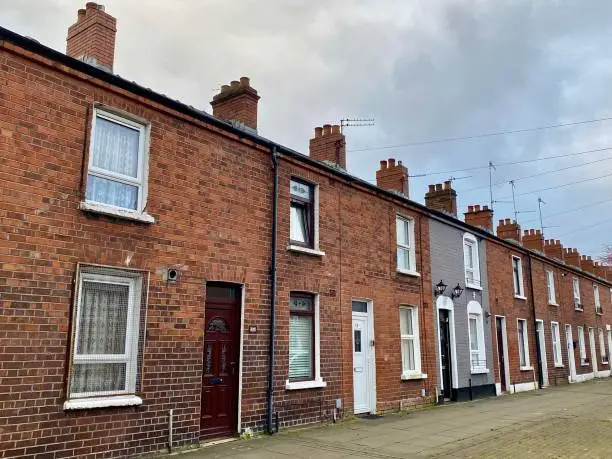Over the last few years, we have, under the Welcome Churches initiative, been supporting asylum seekers who have come here legally and have been placed in our town. People fleeing war and persecution. For those who are concerned about the threat that refugees may pose to our country, befriending them and getting involved in their lives is one of the best things we can do to help prevent refugees from becoming radicalized. We become to them the faces that are Northern Irish – not just a faceless mass of people who (they may fear) hate them.
It is easy to write Facebook (and even PS posts), to send off letters to government officials and even attend counter demonstrations against those perceived to be racist demonstrators. It is harder, but much more worthwhile, to have refugee families in your homes for meals, and to visit them in their homes. We have helped them get domestic appliances working, understand official paperwork, understand their traumatised children’s behaviour and taken them and their children to local parks and beaches.
However, we realise that we could be perceived as possessing too much empathy for asylum seekers, and too little for our fellow citizens. Alongside “the foreigner” Zechariah (chapter 7:10) includes “the poor” among the groups of people the people of Israel were not to oppress. If we possess empathy only for foreigners, and none for fellow citizens with similar needs we run into trouble. And while tainting every asylum seeker as a potential criminal is racist and cruel to the vast majority of them as soon as they become associated in the media with crime – especially against children – public patience cracks.
Appealing for calm and seeking to avoid violence is part of the Church’s mission but to be able to do that we must have some credibility. Casting aspersions on all who protest against housing refugees is not just, as only a minority are bent on violence. Many of those who protest are not angry about ethnicity, but economics and dismissing public concern will almost certainly make people angrier.
The Housing Executive has to bid on the same housing stock for emergency social housing, meaning local citizens in need are being weighed against – and sometimes losing out to – refugees. To compound the situation refugees are only able to afford social housing and private rentals are beyond their reach. There is therefore no demand for houses in middle class leafy suburbs, and the crisis does not impact directly on these communities.
I now know more asylum seekers waiting for housing than I know poor people. Our housing crisis is multifaceted but If people of faith are to have any credibility, we surely need to become more informed. We must join with those pressurising government to address the housing shortage and the related infrastructure problems and at an individual level perhaps do things like make second homes available – for a time at least – at social housing rents.
“We are all racists – at different levels” – so said the American novelist John Grisham in a BBC Newsnight interview in 2013. We all think our own ‘race’ is the best. With a bit of Romans 7:19 honesty (‘For I do not do the good I want to do, but the evil I do not want to do—this I keep on doing’) Grisham also admitted that he struggles with racism every day. We must so struggle too – along with all our other ‘isms’.
The treatment of all who are vulnerable in our society is an indicator of our obedience to God and the prophets continually bring us back to that. “This is what the Lord Almighty said: Administer true justice; show mercy and compassion to one another. Do not oppress the widow or the fatherless, the foreigner or the poor. Do not plot evil against each other.” Zechariah 7:9-10.
Please note that the statements and views expressed in this article of those of the author and do not necessarily represent those of Contemporary Christianity.


Thanks for this Noel, very helpful. Enjoy the walking holiday.
Thank you ,Noel for this challenge. There is another group of adults that I am involved with, who also need housing but seldom get mention in Christian Circles. These are the men who get out of prison but have only hostels or the streets of Belfast or Derry to go to. I wonder if anyone has worked out how those of us who have investments in Pension funds could perhaps use these to buy property and use it for people like these who are in need. Are there any Christian property advisers who have looked into this possible charitable way of caring both for our own future while also thinking of benefiting the needs of the homeless.
Thanks Osmond. Re your last sentence – I have just `been sent this by a friend. It seems to address this issue. https://www.hopeintoaction.org.uk/